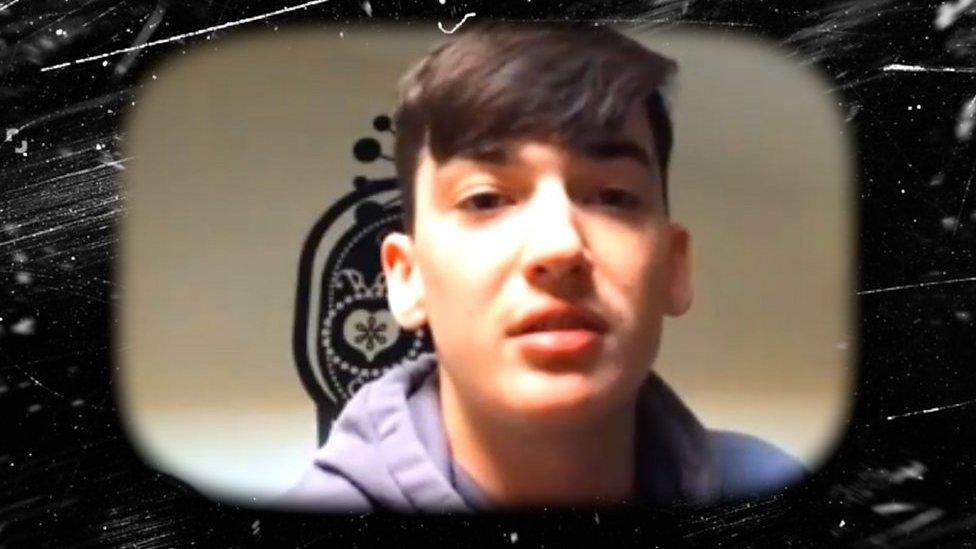NI children's mental health: 'I tell my daughter's story to help save others'
- Published
Gabby Connolly was waiting for counselling when she died from a drug-related incident
"People are being given these waiting times and by the time their appointment comes, it's too late."
These words were spoken by Gabrielle Connolly a few months after she reported an alleged sexual assault.
Aged 17, she was referred to children's mental health services. She did not get counselling and within six months had died in a drug-related incident.
Meanwhile new figures show children's mental health assessment targets have been breached hundreds of times.
Gabrielle's testimony was recorded during a retreat organised by the Quakers Service for young people with mental health problems, in January 2020.
Her mother said she had been struggling with her mental health in recent years.
Lisa Arthurs said: "Gabby was a fun-loving child, but there was a turning point when she reached the aged of 17.
"There was a bit of an argument in the house and Gabby then moved into independent living for young people.
"She was then placed into a B&B and was the victim of an alleged sexual assault."
Following this, Gabrielle was referred to the Child and Adolescent Mental Health Service (CAMHS) in October 2019.
'There was no help'
CAMHS is the NHS mental health service for children and young people up to the age of 18.
Gabrielle's mother believes the CAMHS referral came too late for her daughter.
Ms Connolly said: "We had tried to get Gabby help before, but were told she didn't meet the criteria for a CAMHS referral, but then the alleged sexual assault happened and she spiralled out of control.
"She started using drugs, she was more or less crying out for help, but there was no help there."
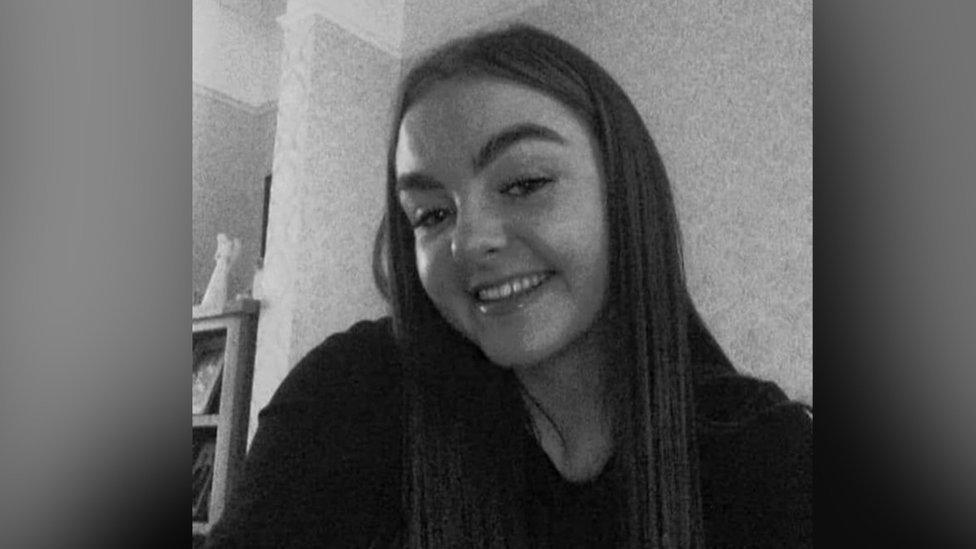
Gabby's mother believes the CAMHS referral came too late for her daughter
In Northern Ireland, CAMHS has a nine-week target for seeing a patient after a referral. Gabby was told she would have to wait months.
Her mother said: "During this period Gabby was placed into five different foster families, where she had two suicide attempts.
"That should have triggered the Belfast Trust to get Gabby the help she needed straight away.
"I tried my best as much as I could, our family tried our best. We didn't know what to do, we needed help."
Gabrielle died of a drug-related incident in July 2020 - she had just turned 18.
In a statement, the Belfast Trust said: "We appreciate this is a difficult time for the Connolly family and we are very sorry for their loss following Gabrielle's passing.
"Unfortunately we cannot comment on this individual case."
'Silent crisis'
Gabrielle's story comes as figures obtained by BBC News NI reveal that health trusts across Northern Ireland have breached CAMHS targets hundreds of times in recent years.
CAMHS referrals fell sharply across Northern Ireland in the first months of lockdown, but began to increase again towards the end of 2020.
Figures obtained through Freedom of Information requests also show that:
In 2020 the nine-week CAMHS target was missed in the Belfast Trust on 712 occasions. The average waiting time for an appointment for 15 to 17-year-olds was 118 days.
In the South Eastern Trust during 2020 there were more than 100 young people waiting over six months and more than 20 young people waiting over a year for a CAMHS appointment.
In the Southern Trust a total of 522 young people did not receive appointments within the nine-week target from 2018 to the end of 2020.
The Northern Trust said that during 2020 its CAMHS target was missed on 62 occasions.
In the Western Trust, the longest waiting time increased from 27 weeks in 2018 to 58 weeks by 2020.
The Northern and Southern trusts said that the vast majority of CAMHS waiting time target breaches happened after the Covid-19 pandemic began in March 2020.
The Belfast and Western trusts said an increase in referrals and staff vacancies had an impact on waiting times.
A Belfast Trust spokesperson said recruitment of vacant posts had been "rigorously undertaken" and was already having an impact on waiting times in 2021.
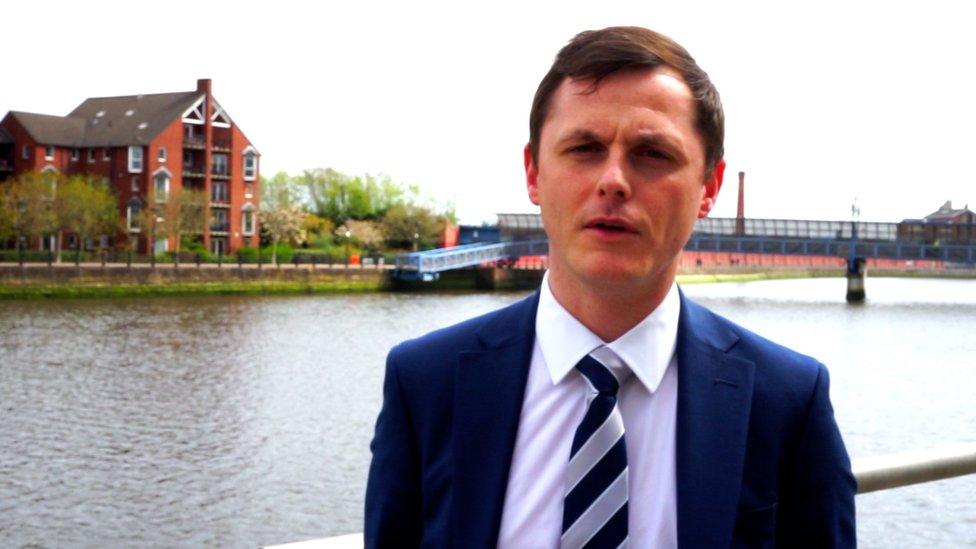
Solicitor Ciaran Mooney said health trusts are 'sleep walking into a silent crisis'
Ciaran Mooney is a solicitor for Gabrielle Connolly's family. He is currently dealing with several cases relating to CAMHS waiting times.
He said: "I think the trusts are potentially sleepwalking into a silent crisis with our young people.
"If you walk into an emergency department with a physical health condition you will get some form of treatment, whereas if you walk in with a mental health condition you're brushed aside, to be quite frank, and could be waiting a bare minimum of three months for a proper appointment."
A research paper on suicide from the Northern Ireland Assembly earlier this month said there was "emerging" evidence the mental health of younger people in particular had been "disproportionately affected" by the pandemic.
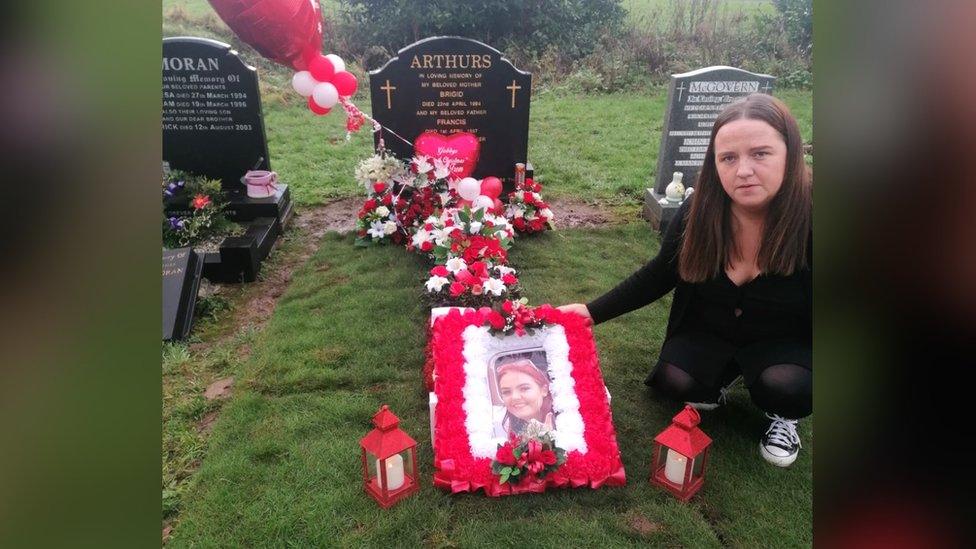
Lisa Arthurs said she hopes lessons can be learned from her daughter's case
Lisa Arthurs said she hopes by speaking out about her daughter's story she can help other young people.
"I spend most days at Gabby's grave because I feel as a mother I have to go there, because I don't want her to feel like I'm leaving her out.
"If by telling Gabby's story I can help save another child, then that's what it's all about."
If you have been affected by any of the issues in this article, there are a list of organisations that may be able to help at BBC Action Line.
Related topics
- Published15 April 2021
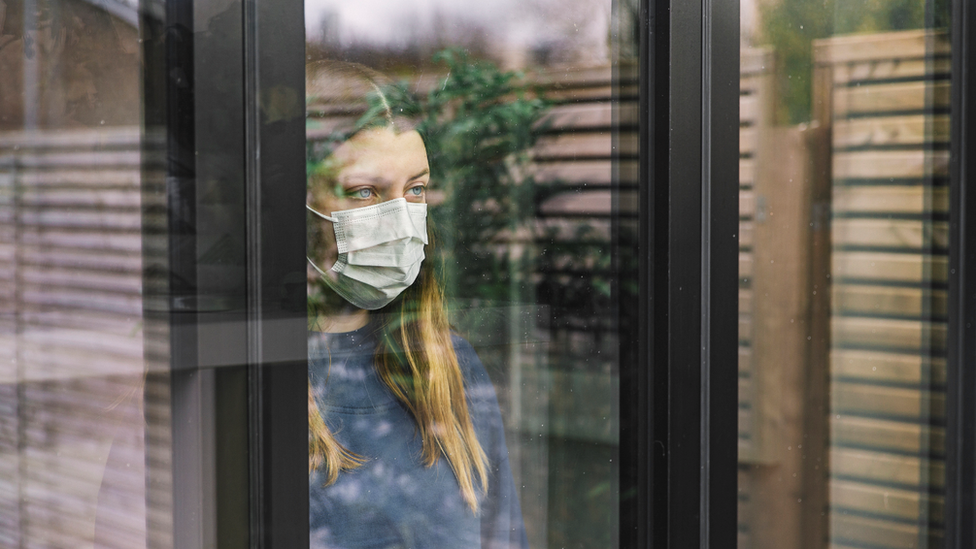
- Published15 February 2021
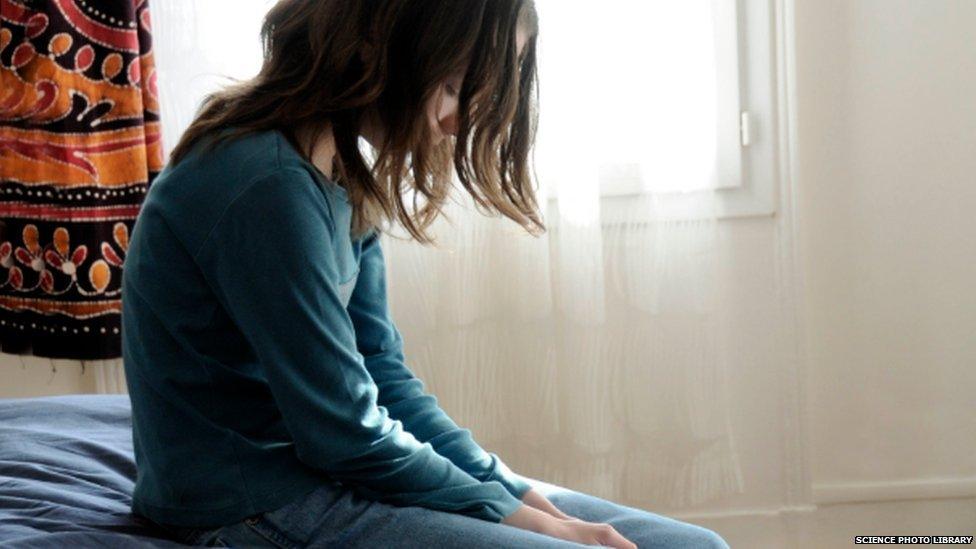
- Published18 January 2021
